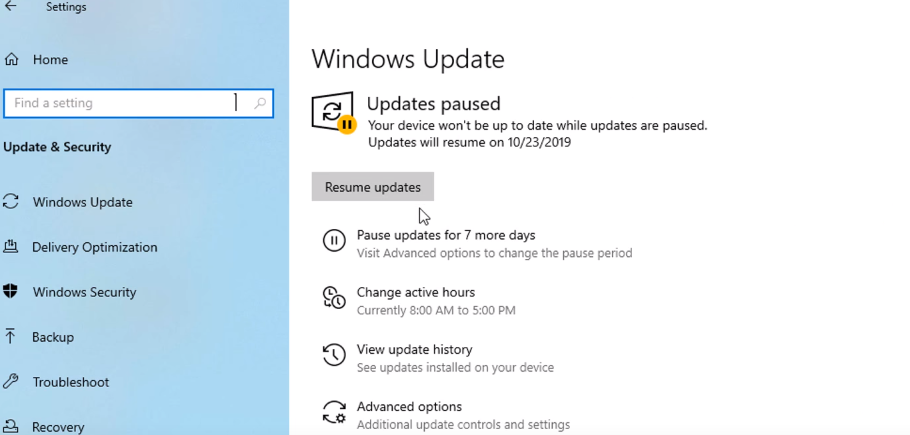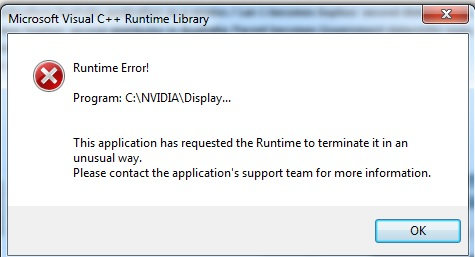Understanding Microsoft Visual C++ Runtime Library Errors
Microsoft Visual C++ Runtime Library errors are a common issue encountered by Windows users. These errors can be frustrating and disruptive, causing applications to crash and leaving users puzzled about how to resolve them. In this guide, we will delve into the causes of these errors and provide step-by-step solutions to fix them. For a better understanding, you can also refer to this helpful video tutorial.
Understanding Microsoft Visual C++ Runtime Library Errors
Before we dive into the solutions, it’s important to understand what these errors are and why they occur. Microsoft Visual C++ Runtime Library errors are typically associated with issues related to software compatibility, corrupted system files, or conflicts between installed applications. When a program that relies on the Visual C++ runtime encounters a problem, it triggers an error message that might include phrases like “Runtime Error!” or “This application has requested the Runtime to terminate in an unusual way.”
These errors often manifest in different ways, including application crashes, freezing, or unexpected behavior. They can affect a wide range of software, from games to productivity tools. Thankfully, there are several strategies you can employ to tackle these errors and get your system back on track.
Causes of Microsoft Visual C++ Runtime Library Errors
These errors are often triggered by issues such as:
1. Software Compatibility
The digital symphony that our systems orchestrate can sometimes be marred by a discordant note known as software incompatibility. As the ethereal realms of various applications collide with the bedrock of the Visual C++ runtime, errors can emerge like ripples on a serene pond. Observe, in Table 1, the complexities that ensue:
| Software | Visual C++ Runtime Version | Result |
|---|---|---|
| App A | VC++ 2017 | No Error |
| App B | VC++ 2015 | Runtime Error |
| App C | VC++ 2019 | No Error |
2. Corrupted System Files
As the digital cosmos spins its web, malevolent forces like malware and hardware failures lurk in the shadows, ready to weave their sinister threads into the intricate fabric of our system files. In the grand mosaic of runtime libraries, even a single corrupted pixel can distort the entire image. Behold, the struggle:
- Malware Infection: The serpent in the garden, malware can slither into our systems, corrupting files with venomous intent. And thus, the Visual C++ runtime is tainted, leading to errors of grand proportions;
- Hardware Failures: The gears of our digital machines can grind to a halt, and in these moments of mechanical melancholy, the Visual C++ runtime files might suffer. A failing hard drive or RAM can deal a blow to the library’s integrity.
3. Conflicts with Other Software
Picture a digital arena where software gladiators engage in fierce combat. In this coliseum of code, clashes between runtime versions and conflicting software packages can ensue. This grand showdown is the backdrop of errors that confound even the most seasoned troubleshooters. Imagine the spectacle:
- App X: A valiant application, reliant on VC++ 2013, stands resolute. But lo and behold, another application, App Y, marches forth with its dependency on VC++ 2010. The clash is inevitable, and runtime errors become the battlefield’s casualties.
4. Outdated Software
In the rapid evolution of technology, time can cast a shadow even on the most remarkable creations. Outdated software, leaning on antiquated versions of runtime libraries, becomes a bridge to the past, and as our systems race towards the future, errors emerge as obstacles on this time-worn path.
For those seeking solutions amidst the challenges of Visual C++ Runtime Library errors, here are some practical lessons to keep in mind:
- Harmony in Compatibility: Ensure your applications are in sync with the appropriate version of the Visual C++ runtime library. A mismatch can lead to the cacophony of runtime errors;
- Vigilance Against Corruption: Guard your system against malware with unyielding determination. Regular system scans and updates are your virtual sword and shield;
- Peace through Isolation: When conflicts arise, consider virtualization or sandboxing solutions. Isolating applications can prevent the clash of runtime versions;
- Embrace the Winds of Change: Embrace software updates with open arms. As applications evolve, so should their dependencies on runtime libraries.
Troubleshooting Microsoft Visual C++ Runtime Library Errors

Resolving these errors requires a systematic approach. Follow these detailed steps to troubleshoot and fix the issue:
Step 1: Update Windows and Visual C++ Redistributables
Outdated software is a prevalent cause of runtime errors. To address this issue:
Update Windows:
| Action | Description |
|---|---|
| Click the Start button | Locate the Start button on your taskbar. |
| Search for Windows Update | In the search bar, type “Windows Update.” |
| Select Check for updates | Click on “Check for updates” from the search results. |
| Install available updates | If updates are available, initiate the installation process. |
| Restart your computer | If prompted, restart your computer to apply the updates. |
Update Visual C++ Redistributables:
| Action | Description |
|---|---|
| Visit Microsoft Download Center | Open your preferred web browser and navigate to the Microsoft Download Center (https://www.microsoft.com/en-us/download). |
| Search for Visual C++ Redistributables | Use the search bar to find the latest Visual C++ Redistributables for your system. |
| Download and install packages | Download each package and follow on-screen instructions to install them. |
Step 2: Repair Visual C++ Redistributables
Corrupted or missing runtime libraries can trigger errors. Here’s how to repair them:
| Step | Uninstalling Visual C++ Redistributables | Reinstalling Visual C++ Redistributables |
|---|---|---|
| 1 | Open the Control Panel: Press the Windows key, type “Control Panel,” and select it from the search results. | Restart your computer: After uninstalling, perform a restart. |
| 2 | Navigate to Programs and Features: Click on “Programs,” then “Programs and Features.” | Download latest packages: Visit the Microsoft Download Center again and download the latest Visual C++ Redistributables. |
| 3 | Locate installed Visual C++ Redistributables: Look for all versions of Microsoft Visual C++ Redistributable packages. | Install packages individually: Install each package one by one, following the on-screen instructions. |
| 4 | Uninstall each package: Right-click on each package and select “Uninstall.” |
Step 3: Check Application Compatibility
Certain applications might not be optimized for your system’s configuration, leading to errors. Here’s what you can do:
| Step | Check Application Compatibility | Update or Patch Applications |
|---|---|---|
| 1 | Visit the application’s official website: Open your browser and navigate to the official website or support page of the problematic application. | Install updates or patches: If the application offers updates or patches, install them. |
| 2 | Look for compatibility information: Check for details about supported operating systems and required runtime libraries. | Address compatibility issues: Developers often release patches to resolve compatibility problems. |
Step 4: Use System File Checker (SFC) Tool
Corrupted system files can contribute to these errors. The System File Checker tool can help fix them:
| Step | Open Command Prompt as Administrator | Run SFC Scan |
|---|---|---|
| 1 | Type “cmd” in the Windows search bar. | In the Command Prompt window, type “sfc /scannow” and press Enter. |
| 2 | Right-click on Command Prompt and select “Run as administrator.” | Wait for the scan to complete: The tool will scan and repair corrupted system files automatically. |
Step 5: Perform a Clean Boot
Conflicts between startup items can lead to runtime errors. Perform a clean boot to troubleshoot:
- Type “msconfig” in the Windows search bar and press Enter;
- In the System Configuration window, go to the “Services” tab:
- Check the box for “Hide all Microsoft services.”;
- Click “Disable all” to deactivate non-Microsoft services.
- Navigate to the “Startup” tab and click on “Open Task Manager.”;
- Disable startup items one by one: In the Task Manager, select each startup item and click “Disable.”;
- Restart your computer: After making changes, restart your computer to check for errors.
Conclusion
Microsoft Visual C++ Runtime Library errors can disrupt your computing experience, but armed with the knowledge provided in this guide, you can confidently troubleshoot and fix them. Remember, patience and persistence are key when tackling these errors. By updating Windows, repairing Visual C++ Redistributables, ensuring application compatibility, using the System File Checker tool, and performing a clean boot, you can significantly enhance the stability of your system. For a more visual walkthrough, check out the accompanying video tutorial.
FAQ
These errors can occur due to a variety of factors, including conflicts between applications, corrupted files, or outdated software. They might seem random, but identifying the root cause can help prevent them.
You should avoid uninstalling these redistributables, as many applications depend on them to function properly. If you encounter issues, it’s better to repair or update them.
No, these errors can occur on various versions of Windows. Keeping your operating system and runtime libraries up to date can mitigate compatibility issues.
Reinstalling Windows should be a last resort. It might resolve the issue, but it’s time-consuming and can result in data loss. Try the steps mentioned earlier before considering this option.


